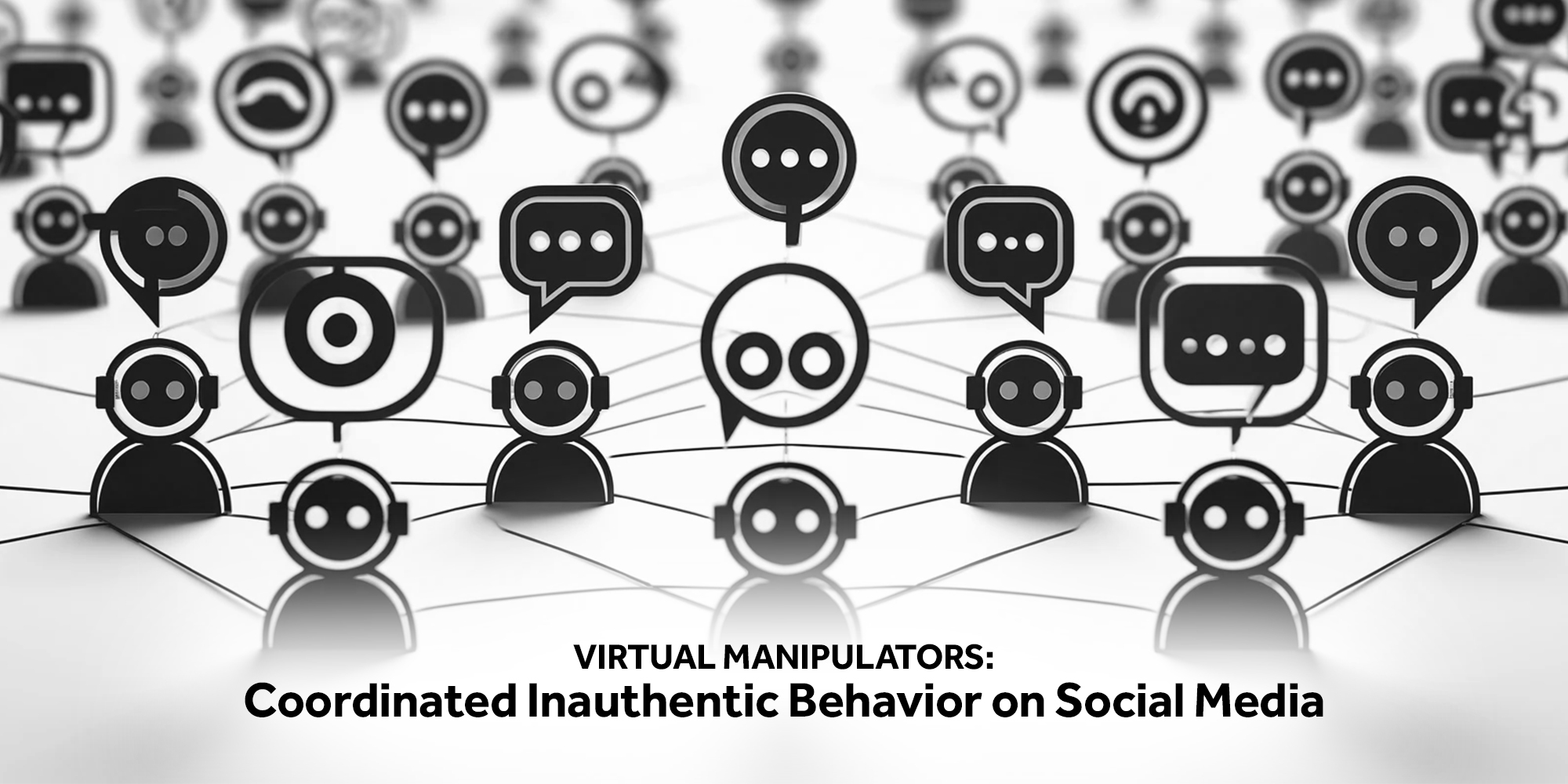In the context of dynamic socio-political events, social media has become arenas where ideological conflicts and political debates unfold. In Montenegro, social media serves as a tool for political actors to mobilize the masses and spread their message. Through the use of fake accounts and manipulation, virtual personalities and supporters who endorse specific political agendas and propagate them through posts, content sharing, comments, and interactions are created. This digital dynamic, which has intensified in Montenegro recently, further exacerbates social polarization and often leads to conflict situations identified both online and in the real world.
Conducting daily social media monitoring of platforms such as X, Facebook, and Instagram, the Digital Forensic Center (DFC) has identified coordinated inauthentic behavior of a network of bot accounts aimed at promoting certain policies and attitudes, thereby influencing public opinion. Coordinated inauthentic behavior implies synchronized and misleading actions of multiple entities on social media.
The analyzed bot profile network continuously promotes and provides support to the Europe Now Movement (ENM), while simultaneously targeting other political entities. Analysis has determined that bot profiles shared the same or similar posts within a short time frame to promote the policy represented by the Europe Now Movement and attempted to discredit political opponents. The network of bot accounts on social media platform X (as of the text’s publication, 29 accounts were observed) was predominately created in April and May 2024. These accounts do not have original posts; their activity is based on sharing posts from the official accounts of the Europe Now Movement and its representatives. Additionally, they do not have profile pictures or use images that can easily be found on the internet or generated through artificial websites like thispersondoesnotexist. Furthermore, flags of Montenegro, the European Union, or Serbia are noticeable as profile or cover photos on the fake accounts. Through coordinated posts, political opponents are targeted, primarily the Democratic Party of Socialists (DPS) and the Civic Movement URA, the activities and achievements of the ENM as the ruling party are emphasized, and it is predicted that local elections in Budva will not be fair and just, but that the list led by Dr. Predrag Zenović stands out from the others and will achieve noticeable results. A significant number of posts relate to the content concerning the Srebrenica Resolution, with the narrative that the Government of Montenegro is responsibly addressing this issue and attempting to prevent manipulations, while it is highly concerning that organizations and individuals from the country and the region challenge the intentions of the Montenegrin Government to clearly specify the responsibility for the genocide and affirm peace agreements from Dayton, which guarantees the territorial integrity of Bosnia and Herzegovina while preserving its entities.
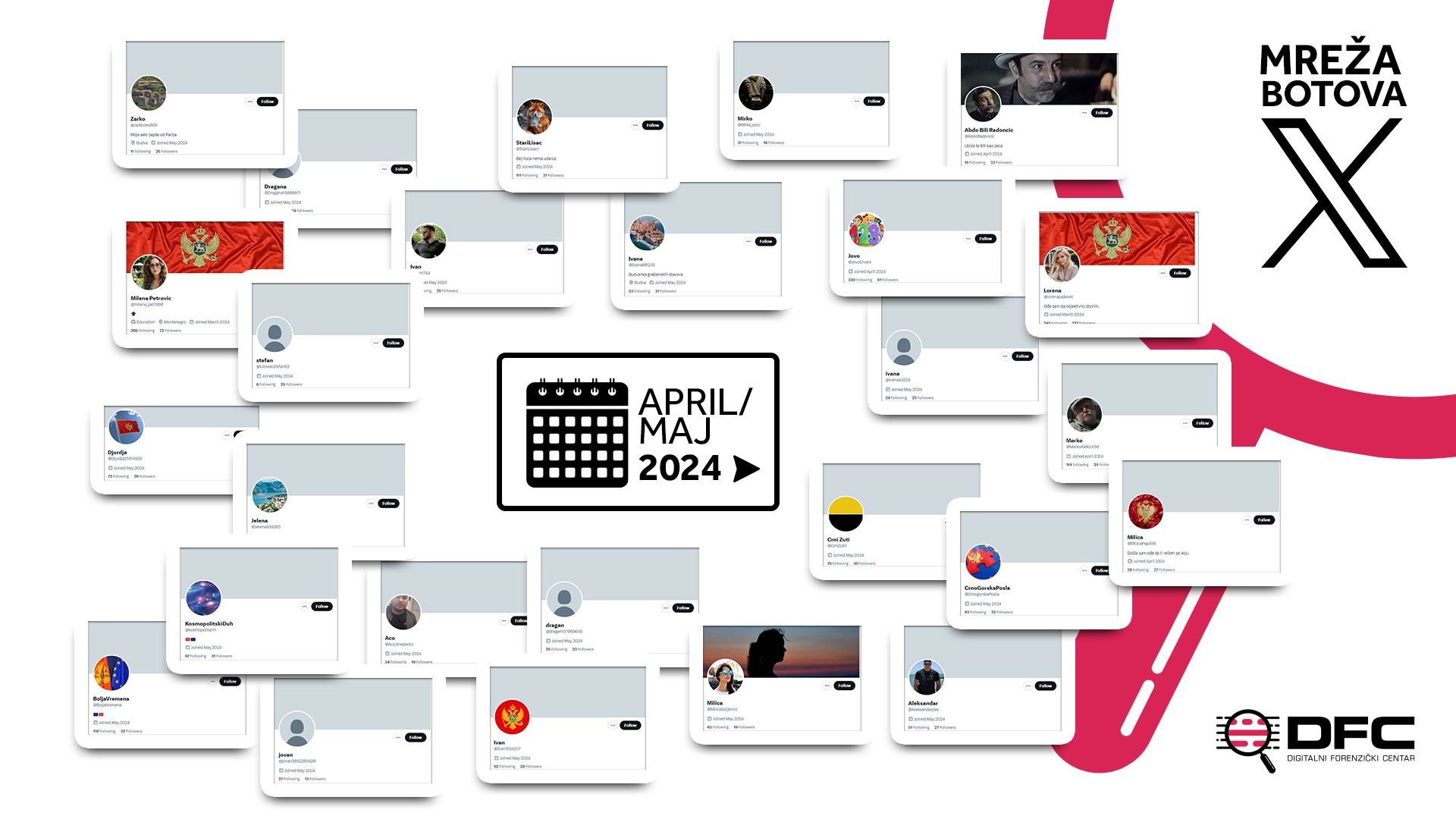
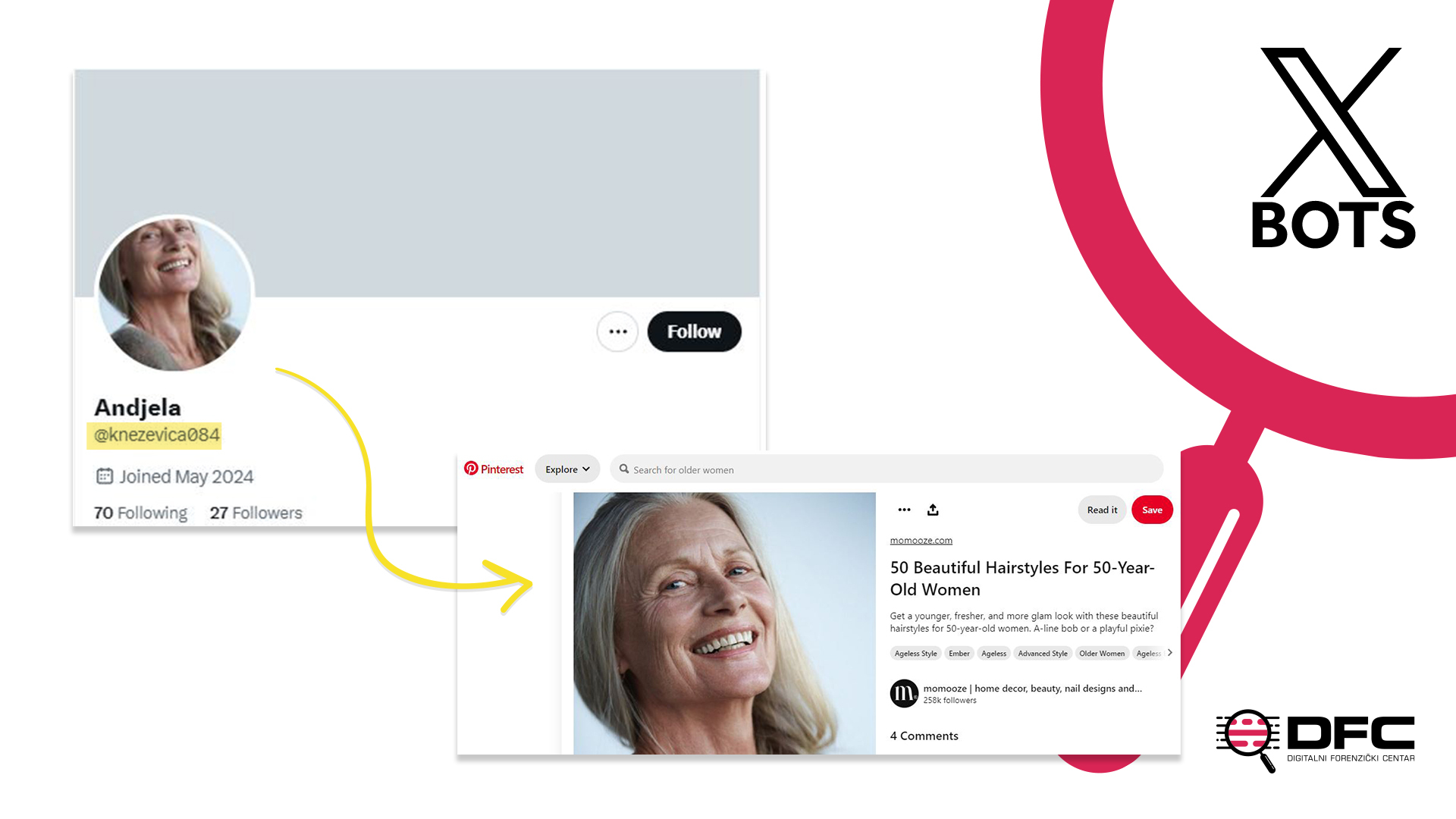
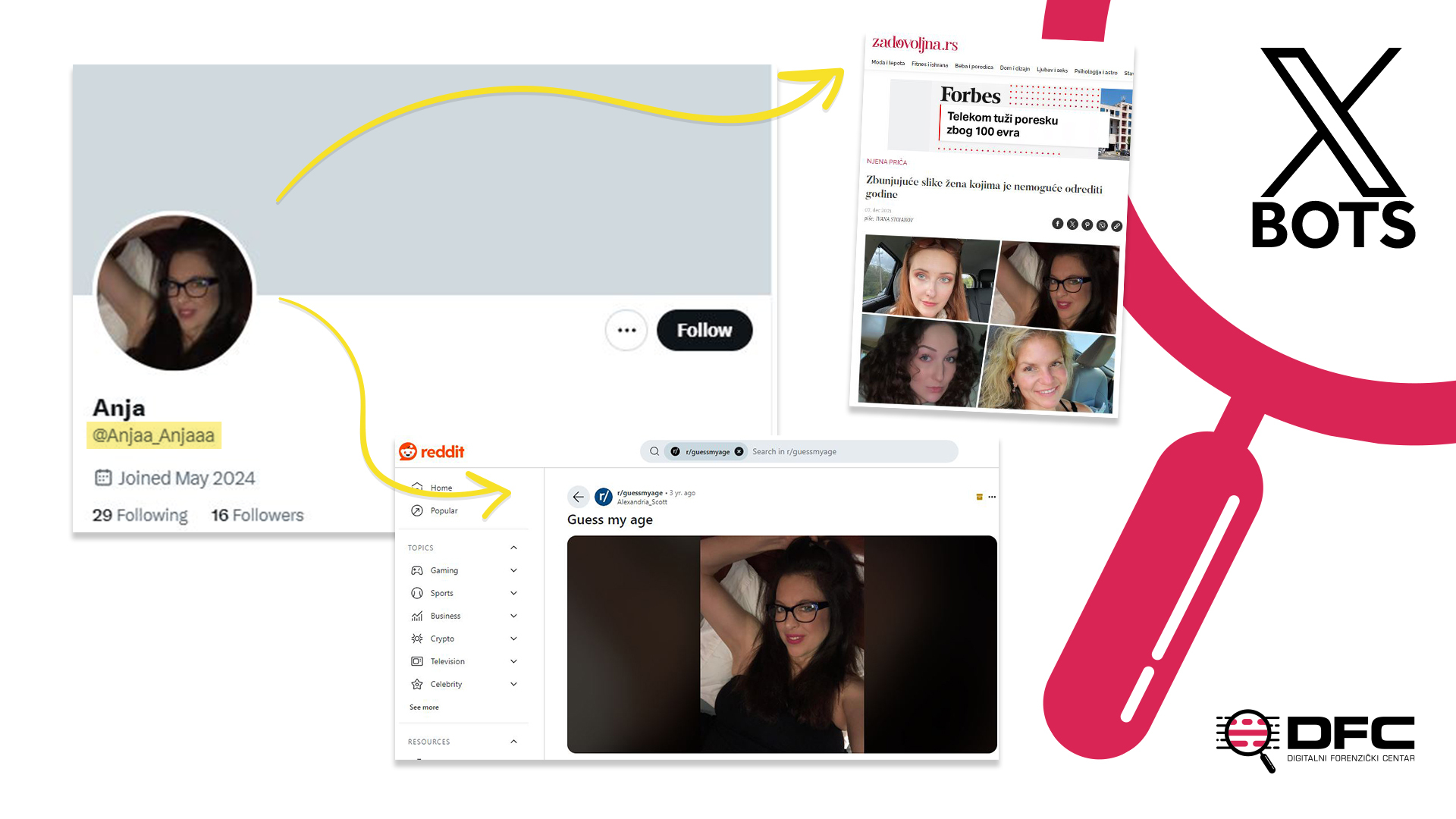
Profiles with the same or similar names have also been discovered on the social media platform Instagram, where the same pattern with photos and activities is observed. At the time of writing the text 25 accounts on Instagram were identified as bots aimed at promoting the policies of the Europe Now Movement, with a particular focus on the Movement’s stance regarding the Srebrenica Resolution and the upcoming local elections in Budva. These accounts are characterized by the absence of personal photos or other posts unrelated to the Europe Now Movement or their political opponents as well.
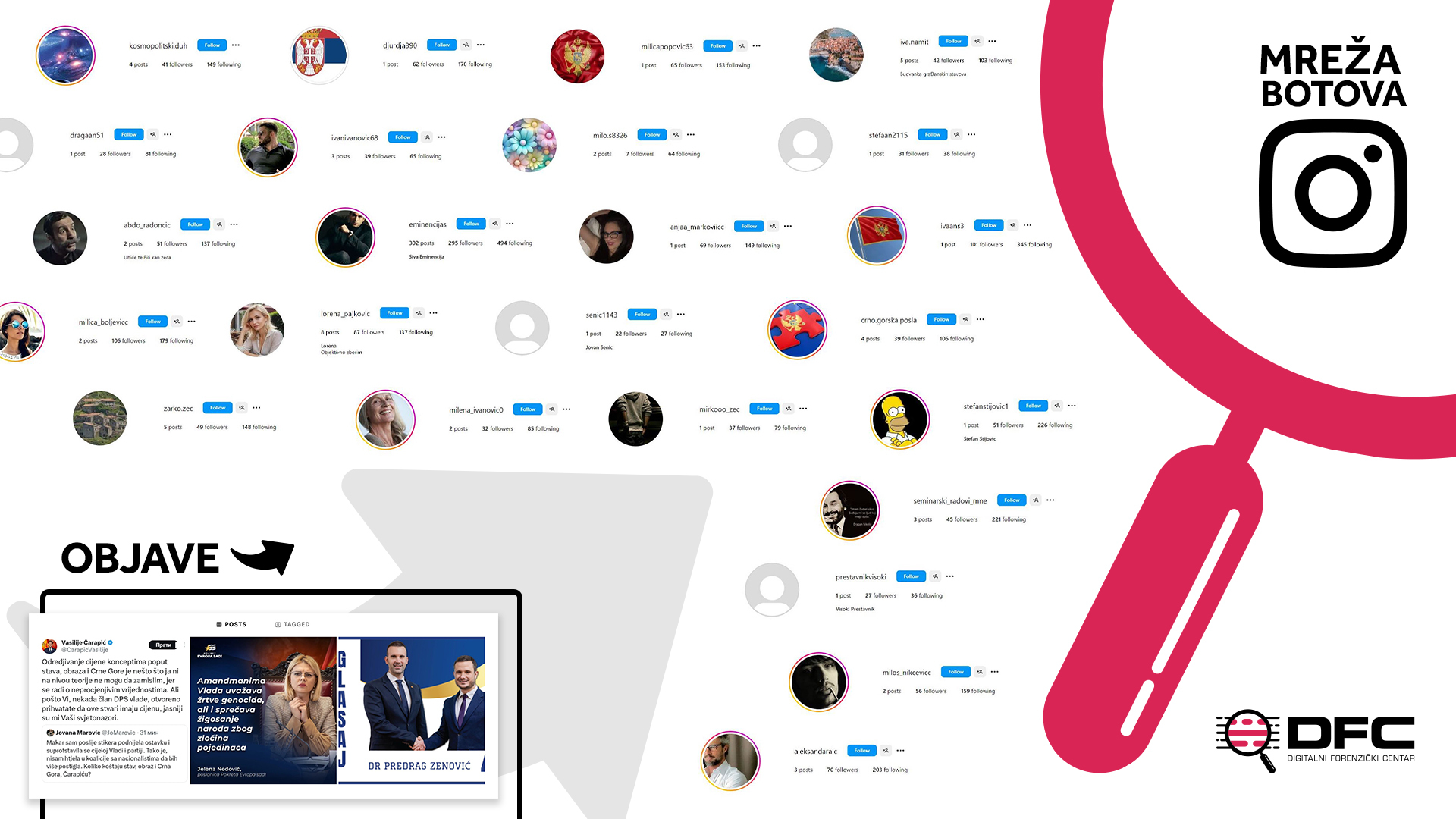
The network of bot profiles attempts to influence the broader public in Montenegro and promotes certain views and policies through generated activities on Facebook as well. The DFC determined through analysis that these accounts are interconnected because they are friends on Facebook, like each other’s comments, share common friends, and have an interest in the same pages. Those profiles share content from the official page of the Europe Now Movement on their profiles or within a networked system of Facebook groups or pages: Srbski svijet, EVROPSKA CRNA GORA, NASA CRNA GORA – НАША ЦРНА ГОРА, IZBORI 2022, CRNA GORA, Legija Crnogoraca, СВИ СРБИ ИЗ ЦГ У ЈЕДНОЈ ГРУПИ, Crna Gora za Spajic Milojka PES, Danilovgrad na mapi Evrope, РИЈЕЧ БОЖИЈА. It is important to note that during the analysis, a network of pages and fake accounts using photos of real women from Montenegro was identified, which were active during the government of Zdravko Krivokapić, as highlighted by the DFC. The sole purpose of these fake and troll profiles and pages is to increase the visibility of content.
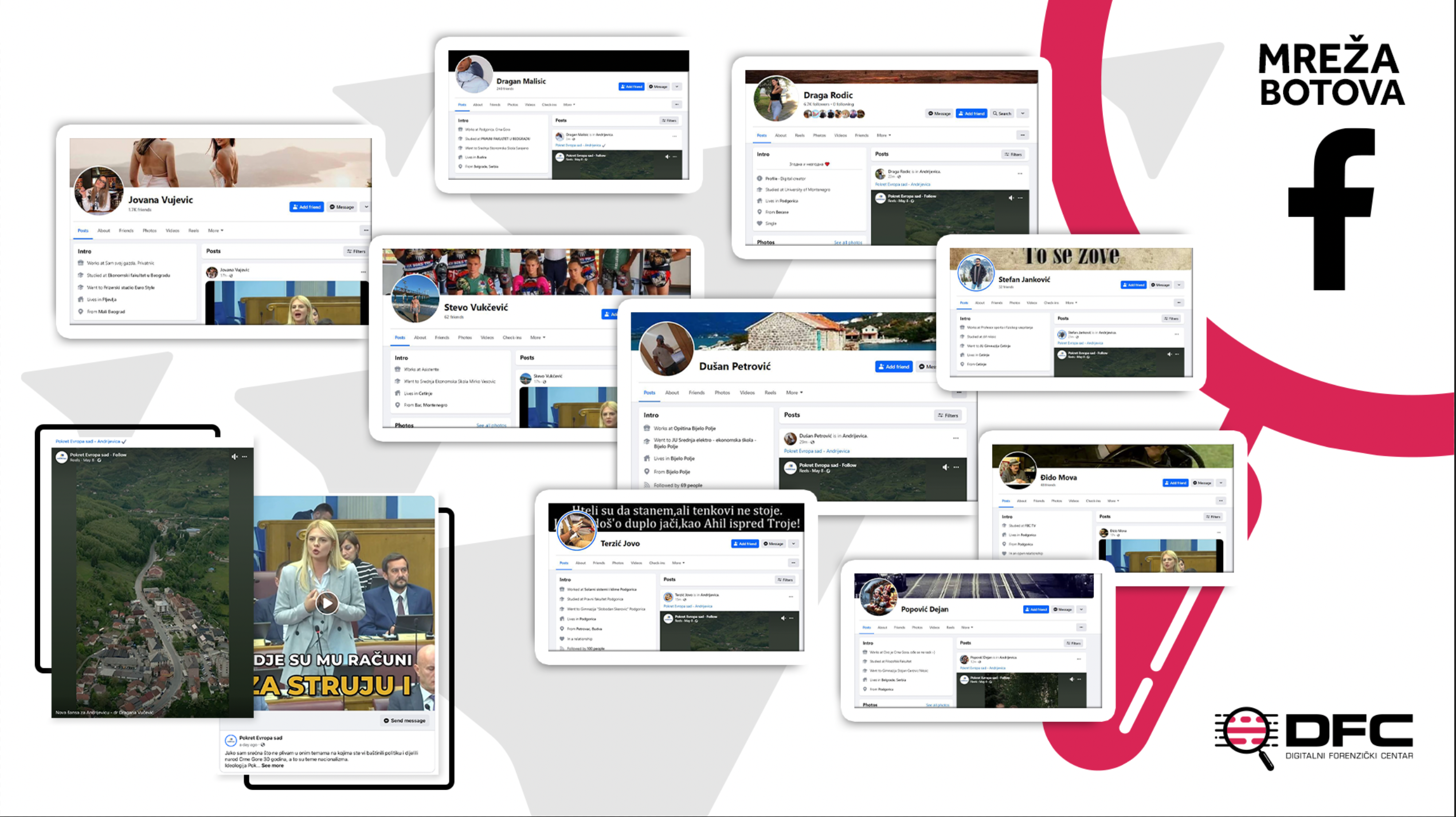
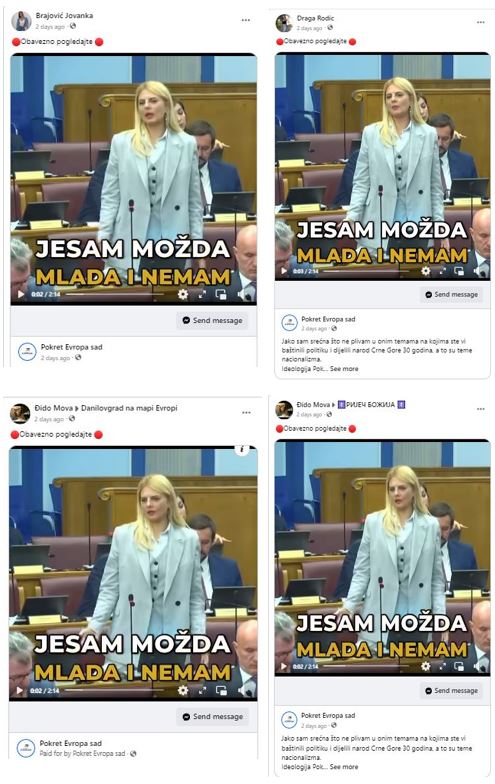
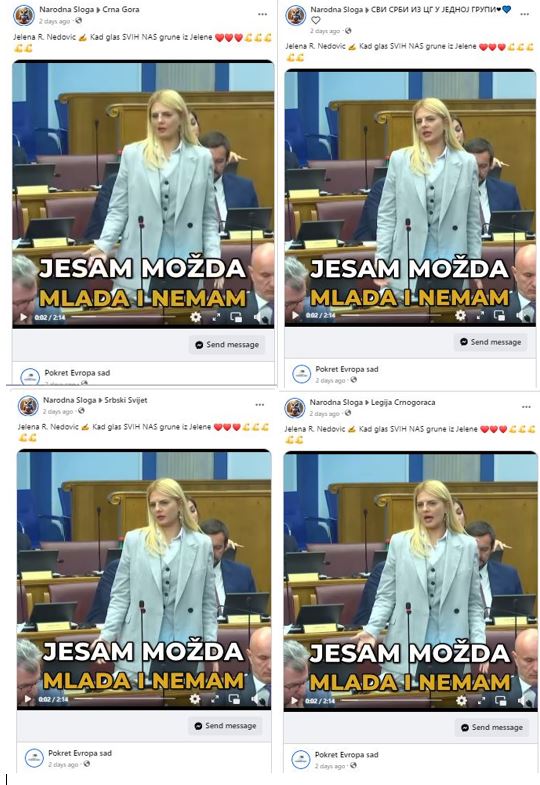
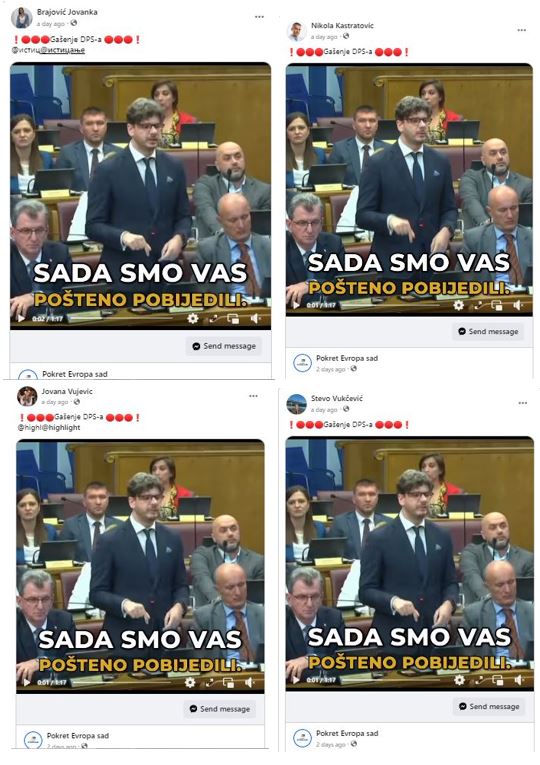
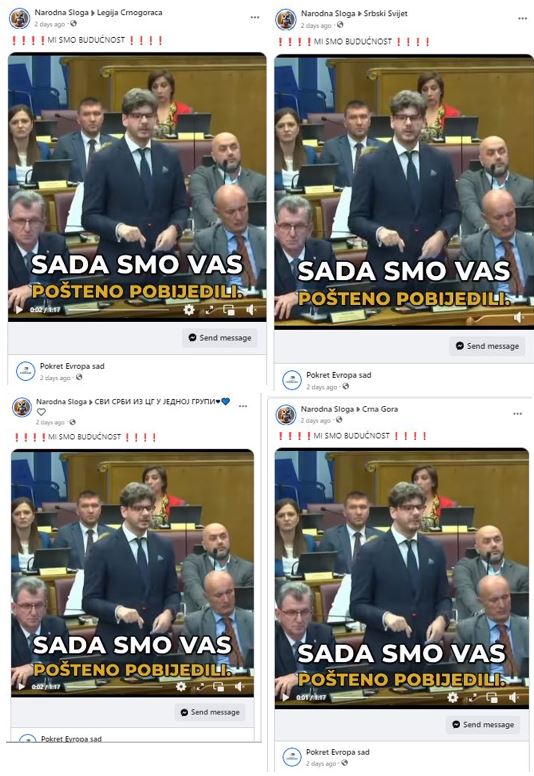
Examples of coordinated inauthentic behavior – sharing content from the official page of the Europe Now Movement
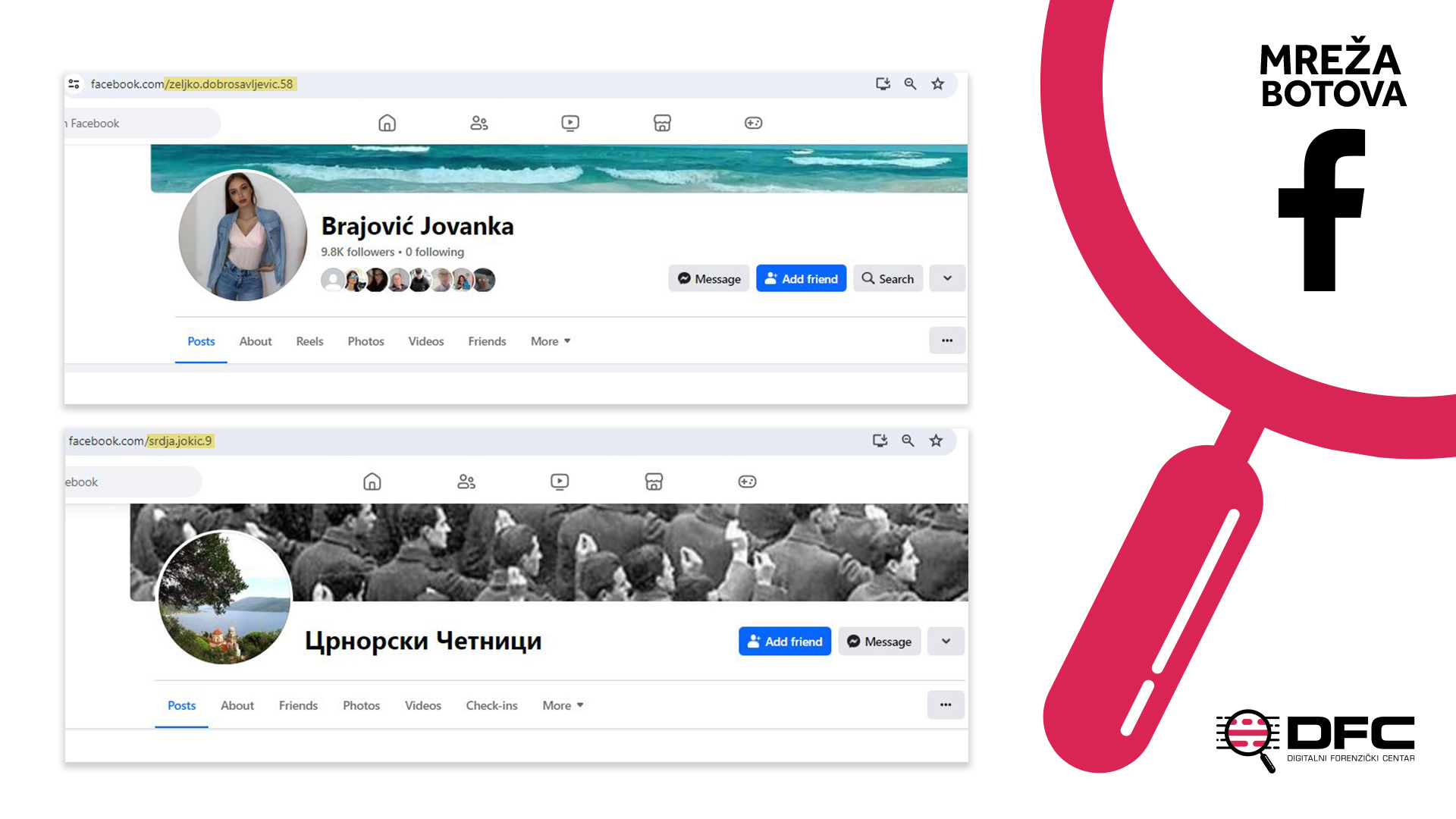
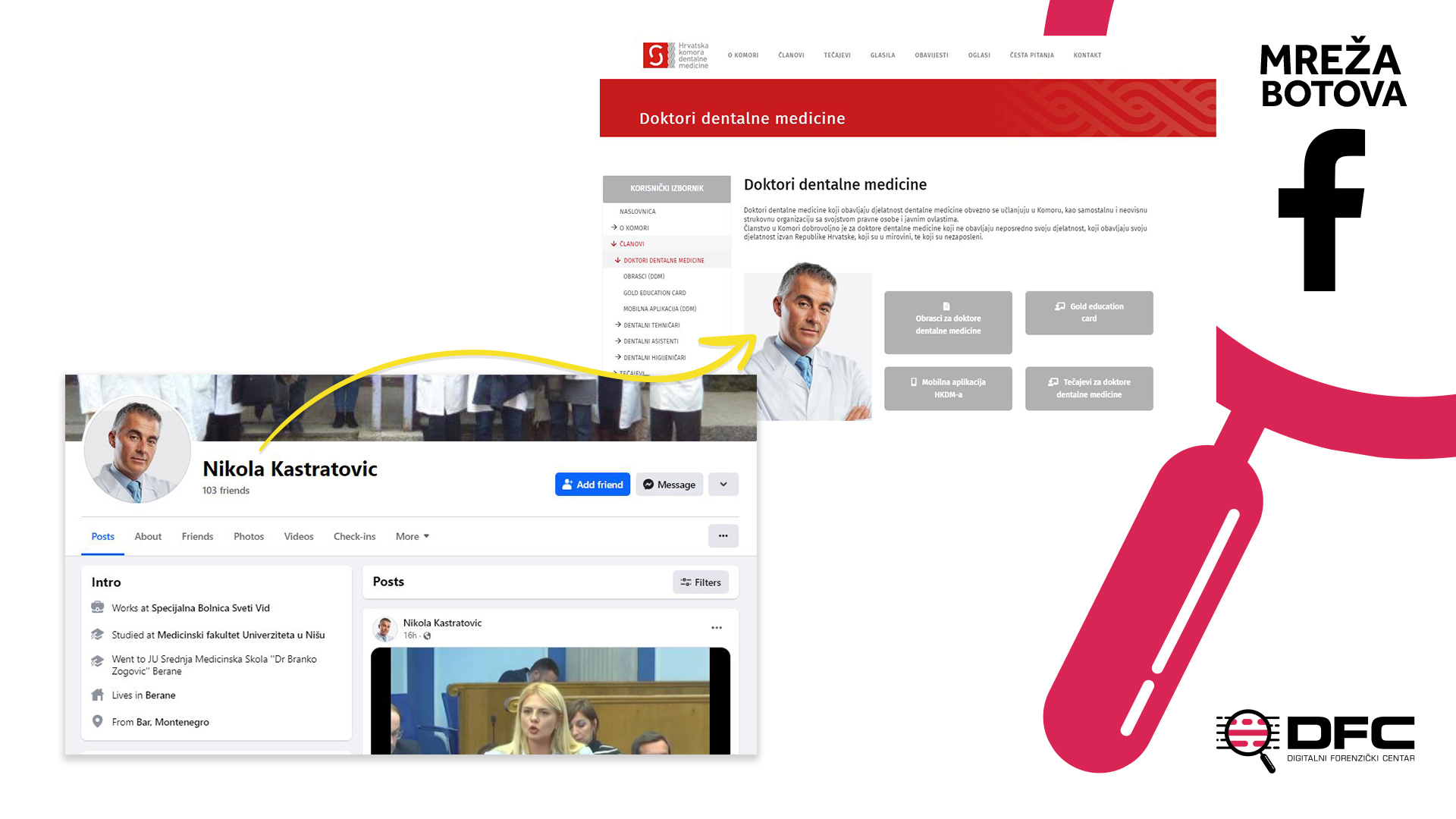
The Digital Forensic Center has multiple times, through the analyses: Facebook Bots: Manipulation and Politics, Synergy of Bots and Certain Media, and Facebook Armies in Service of Parties pointed out the operations of bot networks on social media platforms during important socio-political processes in Montenegro, aimed at promoting certain policies and targeting political opponents. It is identified that the bot accounts highlighted in this analysis use almost the same modus operandi as the bot accounts that were often associated with the Civic Movement URA.
The provided examples clearly demonstrate an organized coordination of profiles and accounts on platforms such as Facebook, X, and Instagram, whose activities can influence the perception of reality among the users of those social media platforms, shaping their attitudes and decisions. The activities of bot networks create an apparent support for political parties that often surpass their actual capacities. Coordinated inauthentic behavior on social media can have serious consequences for society, objective informing, and democratic processes. Therefore, the Digital Forensic Center will continue conducting activities to raise awareness among citizens about abuses and coordinated actions on social media, especially during sensitive socio-political moments, as well as promote transparency and accountability on the internet.

